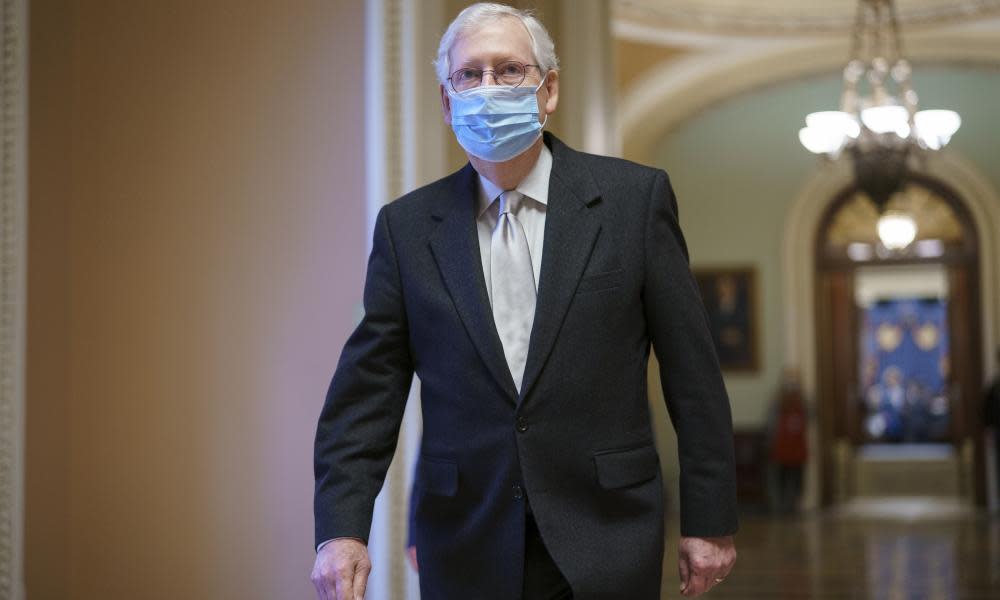Senate filibuster reform would produce 'nuclear winter', says Mitch McConnell

- Oops!Something went wrong.Please try again later.
- Oops!Something went wrong.Please try again later.
- Oops!Something went wrong.Please try again later.
- Oops!Something went wrong.Please try again later.
Mitch McConnell, who was accused of laying waste to bipartisan co-operation in the Senate when he blocked a supreme court pick by Barack Obama then changed the rules to hurry through three picks for Donald Trump, has said that if Democrats do away with the filibuster, they will “turn the Senate into a sort of nuclear winter”.
Related: 'Everything is on the table': Senate prepares for showdown over filibuster
The Republican minority leader, who himself invoked the “nuclear option” to change the rule for supreme court justices in 2017, was speaking to the Ruthless podcast in an episode released on Tuesday.
Eyeing major legislation on voting rights, gun control, infrastructure and more, Democrats who control the White House and Congress are pressuring leaders to reform or abolish the Senate filibuster rule, by which a minority of just 41 out of 100 senators is able to block most legislation.
Joe Biden saw his $1.9tn coronavirus relief package pass earlier this month by budget reconciliation, a narrowly applied process that sidesteps the filibuster rule and allows for passage by a simple majority. He is reportedly considering further major steps by that route, although key priorities such as voting rights could not advance through reconciliation.
But Biden has indicated he may be open to some change to the filibuster.
McConnell is not.
“I think if they destroy the essence of the Senate, the legislative filibuster, they will find a Senate that will not function,” said the Kentucky Republican, who took his own nuclear option six years after then Democratic majority leader Harry Reid made such a move on lower-court appointments and executive branch nominees, to bypass Republican obstruction.
“It takes unanimous consent to turn the lights on here,” McConnell said. “And I think they would leave an angry 50 senators not interested in being cooperative on even the simplest things.”
In 2010, McConnell famously said his chief aim was to ensure Obama was a one-term president. Under Trump, he resisted White House calls to scrap the filibuster.
Democrats in the 50-50 Senate, which is controlled by the vote of Vice-President Kamala Harris, might well retort to McConnell that Republicans have shown precious little interest in co-operation on anything for many years. The Covid relief bill did not attract a single Republican vote.
On Tuesday, in the immediate aftermath of a shooting in a Colorado supermarket that killed 10 and a week after shootings at spas near Atlanta killed eight, the Senate will hold a hearing on “Constitutional and Common Sense Steps to Reduce Gun Violence”. The House has passed gun control measures but without filibuster reform, any such steps seem impossible in the Senate.
Republicans – and some Democrats, including the conservative Joe Manchin of West Virginia, who has indicated he is open to some sort of reform – insist the filibuster protects the rights of the minority.
McConnell said filibuster reform “may not be the panacea that they anticipate it would be. It could turn the Senate into sort of a nuclear winter, nor the aftermath of the so-called nuclear option is not a sustainable place”.

